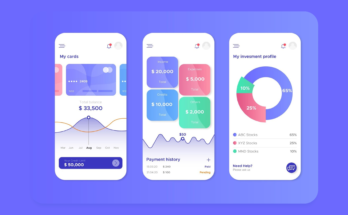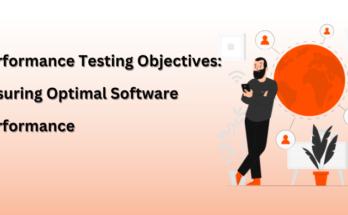Introduction
Mobile app development is not exactly novel anymore – it is so ubiquitous that microindustries of even non-coders are working to create apps and make fortunes.
Traditionally, app development was a time-consuming and expensive process that required specialized knowledge of programming languages. However, with the emergence of low-code and no-code platforms, app development has become more accessible and cost-effective for businesses and individuals alike. In this article, we will explore the impact of low-code and no-code on the future of mobile app development and the benefits it offers.
What is Low-Code/No-Code?
Low code and no code platforms are visual development environments that enable users to create software applications without the need for extensive coding knowledge. Low-code platforms offer a visual interface for developing applications with drag-and-drop functionality, while no-code platforms use pre-built templates and components to create applications quickly.
Want to see a few examples?
Here are 5 top no code / low code tools or platforms for mobile app development that businesses can use to create high-quality mobile apps:
- Appy Pie
Appy Pie is a popular no-code platform that enables users to create mobile apps for Android and iOS devices. With its drag-and-drop interface and pre-built templates, users can create custom apps quickly and easily. Appy Pie also offers a range of features, including push notifications, social media integration, and e-commerce capabilities.
- Bubble
Bubble is a low-code platform that allows users to create web and mobile applications without the need for coding. Its drag-and-drop interface and pre-built templates make app development fast and easy, and its advanced features enable users to create complex applications. Bubble also offers integration with third-party tools such as Zapier and Stripe.
- Glide
Glide is a no-code platform that enables users to create mobile apps from Google Sheets. With its intuitive interface and pre-built templates, users can create custom apps quickly and easily. Glide also offers features such as chat and image galleries, and it integrates with third-party tools such as Zapier and Stripe.
- AppSheet
AppSheet is a no-code platform that enables users to create mobile apps for iOS and Android devices. With its drag-and-drop interface and pre-built templates, users can create custom apps quickly and easily. AppSheet also offers advanced features such as machine learning and data analysis, making it suitable for complex applications.
- OutSystems
OutSystems is a low-code platform that enables users to create mobile apps for Android and iOS devices. With its drag-and-drop interface and pre-built templates, users can create custom apps quickly and easily. OutSystems also offers advanced features such as AI and machine learning, making it suitable for complex applications. OutSystems also offers integration with third-party tools such as SAP and Salesforce.
These are just a few examples of the many no-code / low-code tools or platforms available for mobile app development. When choosing a platform, businesses should consider their specific needs and requirements, such as the features they require, the level of customization they need, and the level of technical expertise they have. With the right platform, businesses can create high-quality mobile apps quickly and easily, without the need for extensive coding knowledge.
Benefits of Low Code/No Code for Mobile App Development
- Faster App Development
The most significant advantage of low code/no code platforms is the speed at which applications can be developed. With pre-built templates and components, developers can create applications in a matter of hours or days, compared to traditional development methods that can take several weeks or months.
- Cost-Effective
The cost of developing an app using traditional development methods can be high, particularly if you are looking to create a customized application. Low-code/no-code platforms offer an affordable alternative, with many platforms offering free trials or low-cost subscription options.
- User-Friendly
Low code and no code platforms are user-friendly, making it easier for non-technical users to create applications without the need for extensive coding knowledge. This opens up app development to a wider audience, including business owners who may not have technical skills.
- Greater Flexibility
Low code and no code platforms provide greater flexibility in app development, allowing developers to make changes quickly and easily. This is particularly useful for businesses that need to make frequent changes to their applications.
Future Possibilities of Low Code/No Code for Mobile App Development
- Greater Adoption
Low-code and no-code platforms are becoming increasingly popular, and their adoption is expected to continue to grow in the coming years. This will result in more businesses and individuals using these platforms to create applications, particularly in industries where mobile apps are critical.
- Improved Functionality
As low-code and no-code platforms continue to evolve, the functionality of the applications created using these platforms will also improve. This will make it possible to create more complex applications, such as those with advanced AI and machine learning features.
- Increased Customization
Low-code and no-code platforms are already offering customization options, but as they continue to evolve, the level of customization available is likely to increase. This will make it possible for businesses to create fully customized applications that meet their specific needs.
- Greater Integration
Low code and no code platforms are already integrating with other technologies such as AI and IoT, and this trend is expected to continue. This will make it possible to create more advanced applications that are integrated with other technologies, such as voice recognition and smart home devices.
Conclusion
The future of mobile app development looks bright and promising, with more businesses and individuals adopting these platforms to create high-quality applications that meet their specific needs.
However, it’s important to note that low-code and no-code platforms are not a replacement for traditional app development methods. They are more suitable for businesses that need to create simple to moderately complex applications quickly and affordably. For more complex applications that require advanced features and functionality, traditional development methods may be more suitable.
Therefore, it would be a good idea to engage a mobile app development company in Dubai, for their app development services or consulting services, to figure out what would work for you: low-code / no-code or custom-built.




